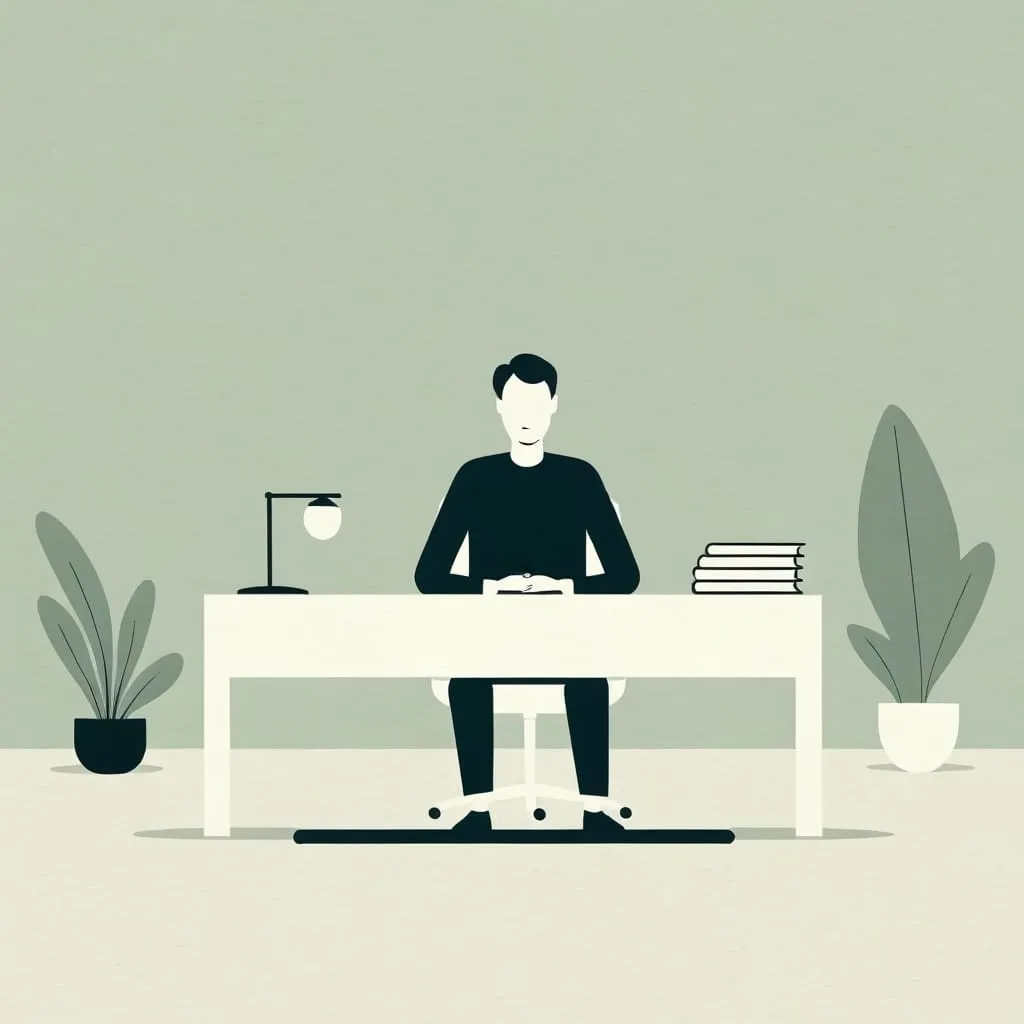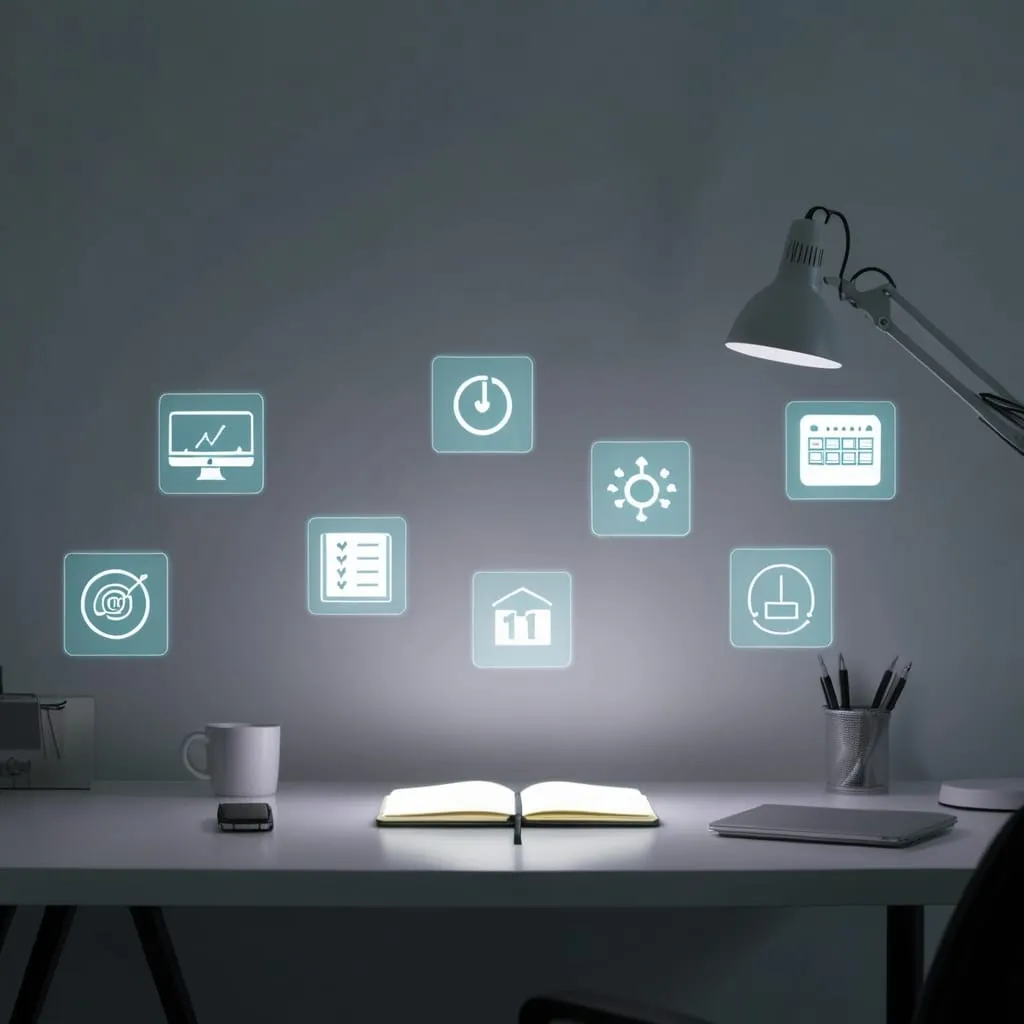The Myth of Multitasking: Why Doing Less is Actually More
In our fast-paced, always-on world, multitasking has become a badge of honor. We pride ourselves on juggling multiple tasks, thinking we're being super productive. But here's the kicker - we're actually shooting ourselves in the foot.
Let's get real for a second. Our brains aren't wired to handle multiple complex tasks at once. When we try to multitask, we're not actually doing several things simultaneously. Instead, we're rapidly switching between tasks, a process called "context switching." And let me tell you, it's exhausting and inefficient.
Think about it. You're working on a report, then you check your email, then back to the report. Each time you switch, your brain needs to refocus and remember where you left off. It's like trying to read a book while someone keeps snatching it away and handing you a different one. Frustrating, right?
This constant mental juggling act doesn't just slow us down - it also increases the chances of making mistakes. We're not giving any task our full attention, so the quality of our work suffers. It's like trying to have a deep conversation while scrolling through social media. You might think you're listening, but you're probably missing half of what's being said.
But the impacts of multitasking go beyond just productivity. It's messing with our ability to learn and remember things. When we're bouncing between tasks, information doesn't get properly encoded into our long-term memory. So even if we manage to get stuff done, we're less likely to retain what we've learned. For students, this is particularly problematic. Imagine studying for an exam while constantly checking your phone - you might cover all the material, but how much of it will you actually remember?
And let's talk about stress. Multitasking is like putting your brain on a treadmill and cranking up the speed. It's constantly under pressure to switch gears, leading to increased stress levels. This can manifest in all sorts of unpleasant ways - headaches, fatigue, and even short-term memory loss. In extreme cases, chronic multitasking has been linked to brain shrinkage. Yes, you read that right. Brain shrinkage. Not exactly the outcome we're aiming for when we're trying to be productive, is it?
So what's the alternative? Enter monotasking - the art of focusing on one task at a time. It might sound simple, even old-fashioned, but it's the key to unlocking true productivity and reducing stress.
When you monotask, you give your full attention to a single task. It's like shining a spotlight on one area instead of trying to light up the whole room with a weak lamp. You complete tasks more efficiently and accurately because you're not constantly redirecting your focus.
But how do we start monotasking in a world that seems to demand we do everything at once? Here are some strategies that have worked for me and many others:
First, prioritize your tasks. Instead of trying to tackle a never-ending to-do list, focus on the top two or three tasks that need immediate attention. Write them down and commit to completing them one by one. It's about quality over quantity.
Next, try using time blocks. Assign specific time slots for each task. If you need to work on a report, block out two hours in the morning dedicated solely to that task. Treat this time block like any other appointment - it's non-negotiable.
The Pomodoro Technique is another great way to monotask. Work in focused 25-minute intervals, followed by a 5-minute break. After four cycles, take a longer break of about 15-30 minutes. This method helps establish a rhythm between work and rest, making it easier to stay focused and avoid burnout.
One of the biggest challenges to monotasking is avoiding distractions. We live in a world of constant notifications and interruptions. Turn off your phone notifications, log out of social media, and find a quiet workspace. If you're really struggling, consider using apps that block distracting websites or turn your phone into a temporary "dumb phone" during your work sessions.
I recently tried monotasking for a week, and let me tell you, it was eye-opening. I started by focusing on one task at a time, whether it was writing an article, cooking dinner, or even taking a shower. Simple tasks became more enjoyable and satisfying when I gave them my full attention.
Eating breakfast without checking my email allowed me to truly taste the food and appreciate the moment. Going for a walk without listening to a podcast let me enjoy the sounds of nature and clear my mind. It wasn't easy, though. My mind kept wandering to what I needed to do next, and it took discipline to stay present. But by the end of the week, I felt calmer and more productive.
I realized that the constant feeling of being rushed was largely due to my habit of multitasking. By focusing on one thing at a time, I eliminated that undercurrent of stress and enjoyed my tasks more.
Monotasking isn't just about productivity; it's also about being present in the moment. When you focus on one task, you're more mindful of what you're doing. This mindfulness can extend beyond work into other areas of your life. Imagine enjoying a meal without the distraction of your phone or watching a movie without checking your email. These small changes can make a significant difference in how you experience life.
It's time to challenge the notion that multitasking is a skill to be proud of. In reality, it's often a productivity killer and a source of unnecessary stress. By embracing monotasking, we can not only get more done but also improve the quality of our work and our lives.
Monotasking allows us to dive deep into tasks, giving them the attention they deserve. It's like the difference between skimming the surface of a lake and diving in to explore its depths. When we monotask, we open ourselves up to new insights and creative solutions that we might miss when our attention is divided.
Moreover, monotasking can actually save us time in the long run. When we focus on one task at a time, we're less likely to make mistakes that need correcting later. We also complete tasks more quickly because we're not constantly reorienting ourselves.
But perhaps the most significant benefit of monotasking is its impact on our mental well-being. In a world that often feels chaotic and overwhelming, monotasking offers a sense of control and calm. It allows us to be fully present in each moment, reducing anxiety about the future or regrets about the past.
Adopting a monotasking approach doesn't mean you can never do two things at once again. There are certainly times when it's appropriate to multitask, especially when dealing with simple, routine tasks. The key is to be mindful about when you're multitasking and to recognize when a task requires your full attention.
As we move forward in an increasingly complex and fast-paced world, the ability to focus deeply on one task at a time may become one of the most valuable skills we can develop. It's not just about getting things done; it's about doing them well, with less stress and more satisfaction.
So the next time you find yourself trying to juggle multiple tasks, take a step back. Choose one thing to focus on, give it your full attention, and see how it changes your experience. You might be surprised at how much more you can accomplish - and how much better you feel - when you embrace the power of doing less to achieve more.
Remember, productivity isn't about how many balls you can keep in the air at once. It's about how effectively you can move each ball forward. By focusing on one task at a time, you're not just being more productive - you're paving the way for a calmer, more focused, and more fulfilling life.
In the end, the choice between multitasking and monotasking is about more than just how we work. It's about how we want to live our lives. Do we want to skim the surface of many experiences, or do we want to dive deep and fully engage with each moment? The power is in our hands to choose focus over frenzy, depth over breadth, and quality over quantity.
So let's challenge the multitasking myth. Let's embrace the power of doing one thing at a time, and doing it well. In a world that's constantly demanding more, sometimes the most revolutionary thing we can do is to do less - but to do it better. Here's to monotasking, to being present, and to rediscovering the joy of focusing on what truly matters, one task at a time.






